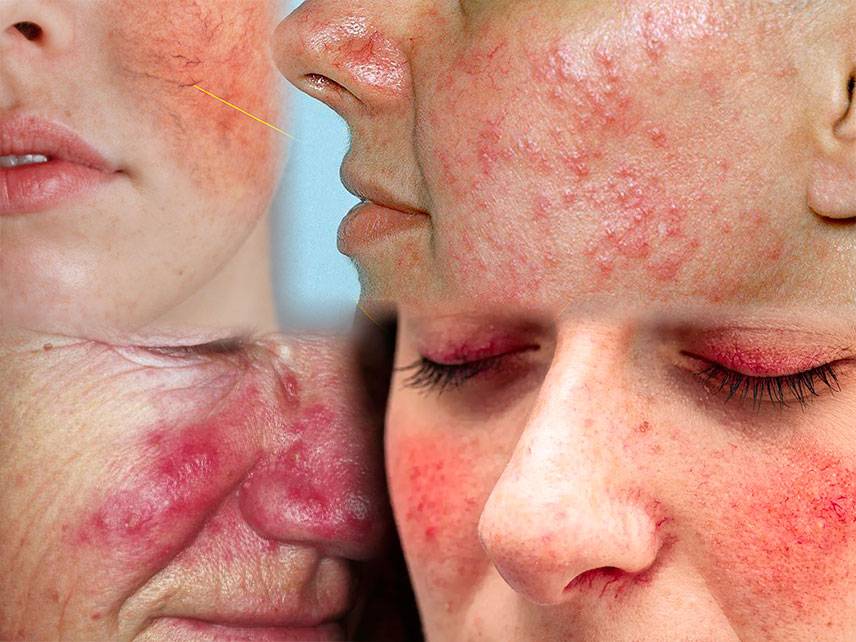Rosacea is a common skin condition that causes redness and bumps on the face. It affects over 16 million people in the United States alone. While it is not life-threatening, it can cause significant discomfort and embarrassment. In this article, we'll explore the signs and symptoms of rosacea, its potential causes, risk factors, diagnosis and treatment, and how to cope with this condition.
Signs and Symptoms of Rosacea
The five primary symptoms of rosacea are: redness on the cheeks, nose, chin, or forehead; small, red bumps on the face; visible blood vessels on the face; dry, sensitive skin; and swollen or tender skin. Other signs and symptoms may include burning or stinging sensations, thickened skin, and eye irritation or vision problems.
Causes and Risk Factors
While the exact cause of rosacea is unknown, there are certain factors that may increase the risk of developing this condition. These include having fair skin, having a family history of rosacea, being female, and being of northern or eastern European ancestry. Certain environmental factors, such as exposure to sunlight, wind, and extreme temperatures, may also increase the risk. In addition, certain medications, foods, and drinks may trigger rosacea flare-ups.
Prevention
In order to reduce the risk of developing rosacea, it is important to practice good skin care. This includes wearing sunscreen with an SPF of 30 or higher every day and avoiding harsh facial cleansers and scrubs. It is also important to avoid certain triggers, such as spicy foods, alcohol, and extreme temperatures.
Diagnosis and Treatment
Rosacea is typically diagnosed by a physical examination. Your doctor may also order a skin biopsy or blood tests to rule out other conditions. Treatment options may include topical medications, oral medications, light therapy, and laser treatments.
Coping and Support
Living with rosacea can be difficult. It is important to find coping mechanisms to help manage the condition. This may include stress-reduction techniques, such as deep breathing or yoga, and support groups.
Complications
In some cases, rosacea can lead to complications, such as facial swelling or eye problems. It is important to seek medical attention if these complications occur.
Living With Rosacea
Living with rosacea can be challenging. However, there are steps you can take to manage the condition and reduce your risk of flare-ups. Following a skincare routine and avoiding triggers can help manage the symptoms. In addition, finding coping mechanisms and support can help you live with rosacea.
In conclusion, rosacea is a common skin condition that can cause significant discomfort and embarrassment. While it is not life-threatening, it is important to take steps to prevent and manage rosacea. If you are experiencing any symptoms of rosacea, be sure to see your doctor for diagnosis and treatment. With the right care and support, you can manage your rosacea and live your life to the fullest.





